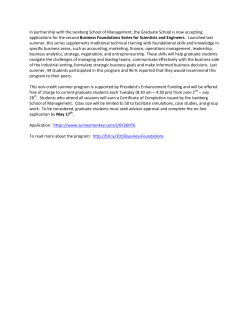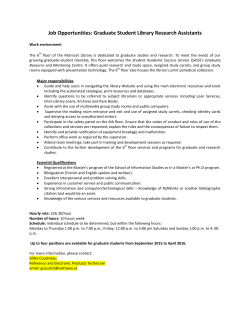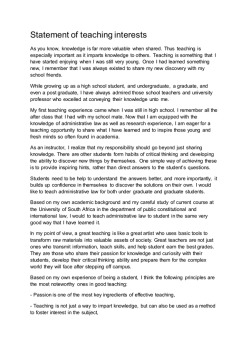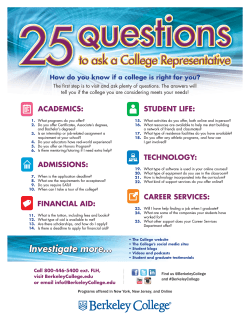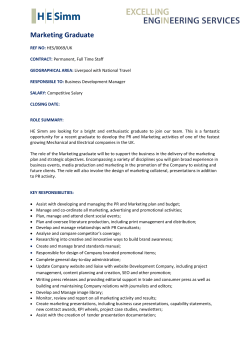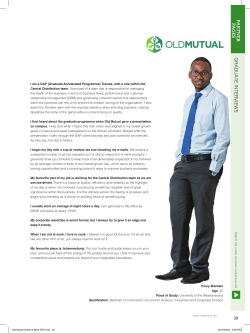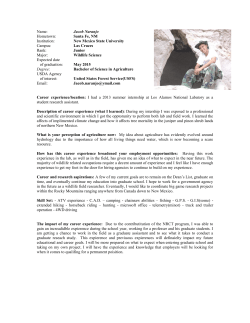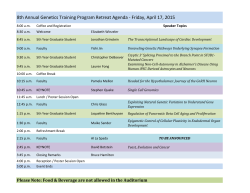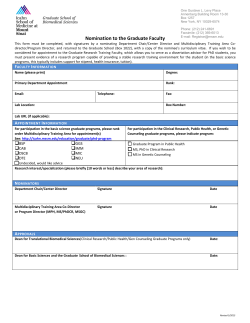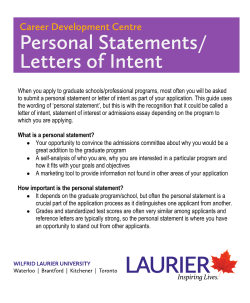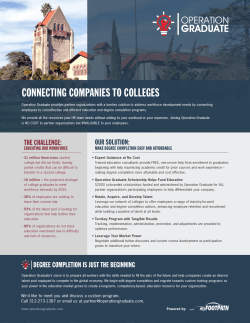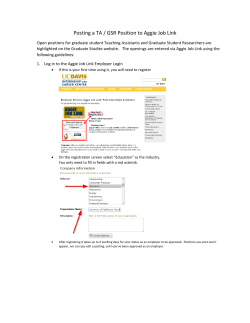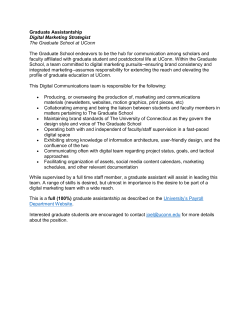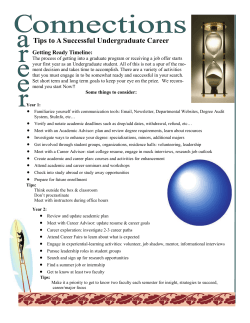
Document 25300
METU School of Foreign Languages Academic Writing Center ODTÜ/Yabancı Diller Yüksek Okulu Akademik Yazı Merkezi STATEMENT OF PURPOSE What is a Statement of Purpose? A Statement of Purpose, or Letter of Intent, is your personal statement about who you are, what has influenced your career path so far, your professional interests and where you plan to go from here. It is your one chance to stand out from among many other well-qualified applicants. Among all the documents that are handed in during an application, it is the Statement of Purpose that is often the most deciding factor because it brings the applicant to life. A well-written Statement of Purpose can show your creativity, skill and professionalism; and therefore can make or break the application. Admissions officers who read and evaluate Statements of Purpose also look for attributes such as enthusiasm, honesty, capability, curiosity and most importantly uniqueness. It is a good idea to brainstorm ideas and write several drafts before finalizing the statement. Below is the commonly expected organization of a Statement of Purpose. Each part can consist of one or more paragraphs and the length can vary greatly depending on the expectations of the admissions committee. Part 1: Introduction ● Tell what you want to study. ● Tell how you became interested in this field. Part 2: Summarize what you did as an undergraduate/graduate ● Firstly, mention important class or classes you took which stimulated your desire for graduate study, such as a specific project for a class.(If you did a research, indicate with whom you did the research, the title of the project, what your responsibilities were, and the outcome). You may also refer to conversations with people in the field, books you have read and seminars you have attended ● Secondly, if you had work experience, indicate what you have been doing while working, that is ,the company, work/design team, responsibilities, and what you learned.It is better to indicate how your work experience helped you formulate your interest. Part 3: Indicate what you want to study in graduate school in greater detail ● Indicate areas of interest. You should have an area of emphasis selected before you write the statement. ● Look at the web page for information about the department you intend to apply, about the professors, the faculty members and their research. What attracts you most about the institution you are applying to? Which faculty members are doing things that seem the most exciting? Are there professors whose interests match yours? ● Then indicate the most interesting or notable thing about yourself, why you are a match for their program, why you might be a stronger candidate for that graduate school, what you plan to do with the education you hope to receive.(Your essay should reflect what is special,unique,impressive about you!) Part 4: Conclusion ● End your statement in a positive and confident manner with a readiness for the challenges of graduate study. Keep these in mind while writing a Statement of Purpose ● First and foremost, your aim is to convince the admissions officers that you are the right person. ● Make your ideas meaningful by giving examples from your life and making explanations, rather than using clichés such as “I have always wanted to be a doctor because I enjoy helping people”. ● Be selective and only write about achievements relevant to your main objective. ● Write about current ambitions, rather than those related to the past. They want to know what is in your mind now. For instance, “I find computers intriguing because of their endless potential and what I can do with them,” would be more convincing than “Computers have fascinated me since my early childhood”. ● If you need to explain poor grades, do so without making excuses. State what affected your performance and follow up with what you did to improve the situation. ● Motivation, competence and your potential as a graduate student are what they most want to see. ● The length of your statement can vary greatly, depending on the universities’ requirements. Most often, the expected length is 500-600 words, 1 or 1,5 pages, single-space.
© Copyright 2025
